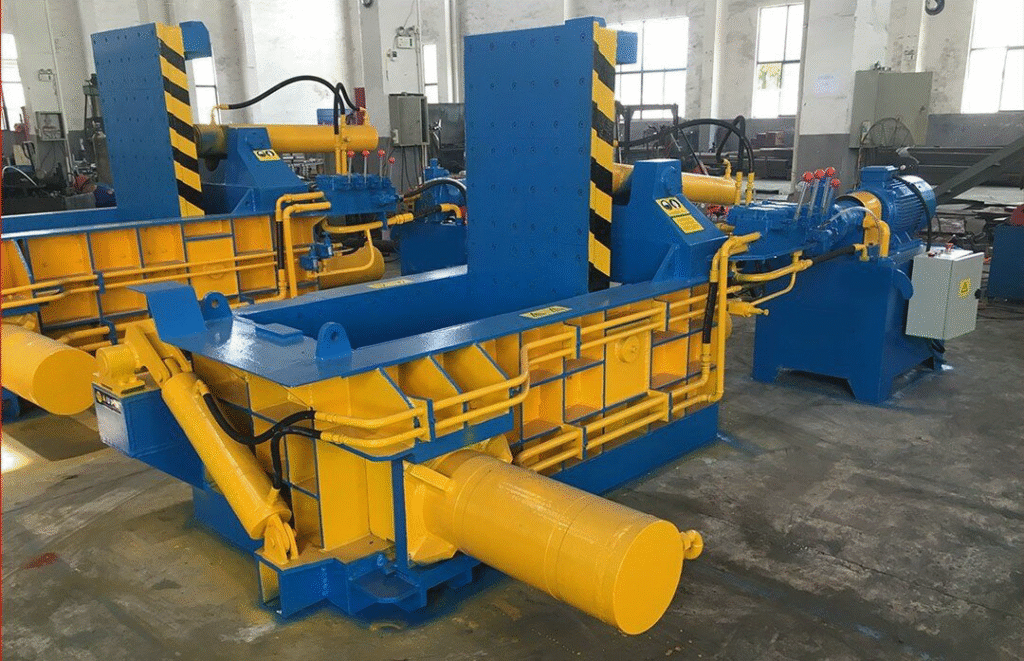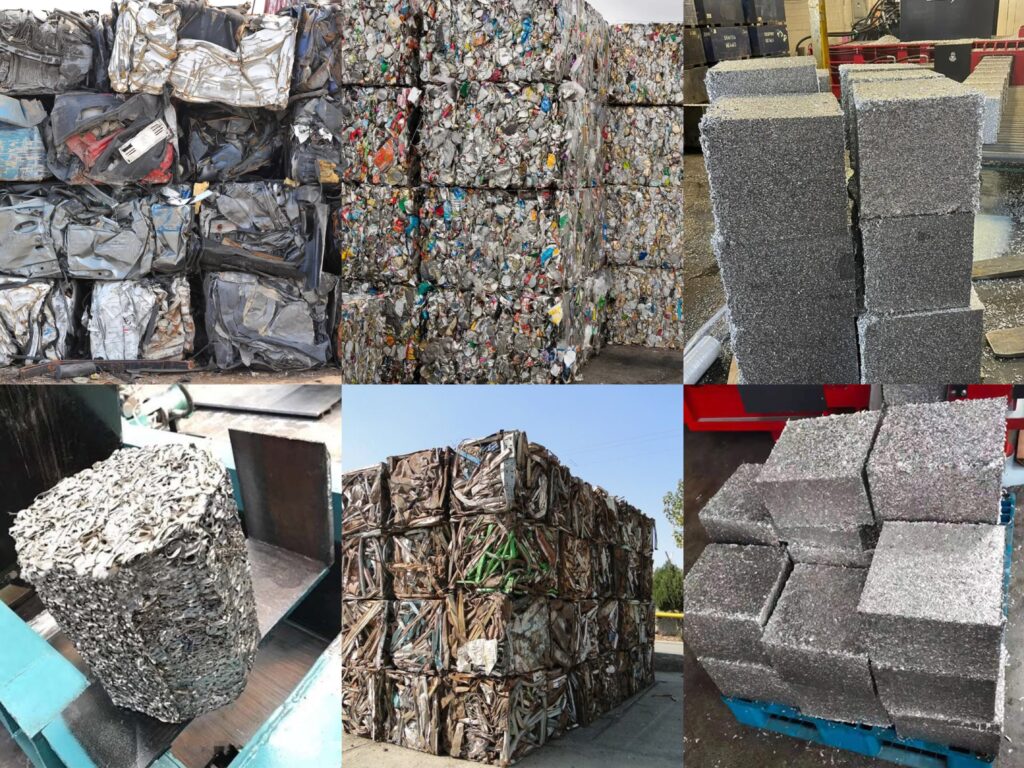♻️ Metal Balers: The Secret Weapon for Turning Scrap into Gold
In today’s manufacturing and recycling industries, scrap metal recycling is no longer just about protecting the environment—it’s also a major profit driver. And at the heart of this transformation is one powerful machine: the Metal Baler.
1️⃣ What is a Metal Baler?

A metal baler is a machine that compresses loose scrap metal into dense, uniform bales using high hydraulic pressure. It can handle:
-
Scrap Steel
-
Aluminum
-
Copper
-
Stainless Steel
-
Various metal offcuts and waste
Once baled, metal becomes easier to store and transport and can be smelted more efficiently during recycling.
2️⃣ Why Every Business Needs One
💡 Save on Transportation Costs – Baled metal takes up 50%–80% less space, allowing you to transport more per load.
💡 Increase Recycling Value – Denser, more uniform bales often fetch better prices in the scrap market.
💡 Eco-Friendly – Reduces storage space, prevents material loss, and minimizes environmental pollution.
💡 Boost Company Image – Businesses with modern baling equipment are seen as efficient, green, and forward-thinking.
3️⃣ Key Advantages of a Metal Baler
| Advantage | Description |
|---|---|
| High-Pressure Hydraulic System | Ensures tight, compact bales. |
| Automated Operation | Cuts labor costs and improves workplace safety. |
| Multiple Loading Methods | Top-loading, side-loading, or front-loading to suit different material shapes. |
| Customizable | Tailored bale sizes and chamber dimensions for specific needs. |
4️⃣ Industries that Benefit from Metal Balers

Metal balers are essential in:
-
Scrap Metal Recycling Plants
-
Steel Mills
-
Aluminum Processing Plants
-
Shipbuilding and Dismantling Yards
-
Automotive Recycling Centers
- Hardware and Machinery Factories
5️⃣ The Future: Smarter and Greener
With the rise of Industry 4.0, the next generation of metal balers is moving towards smart control systems, energy-efficient hydraulics, and remote monitoring. In the future, they won’t just be machines—they’ll be data-driven, intelligent recycling partners.
